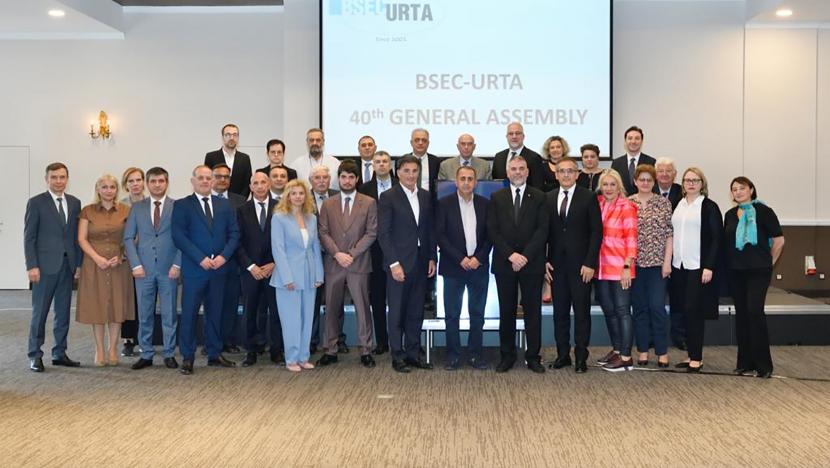War in Ukraine has dramatically increased goods transport south of the Black Sea, putting more pressure on congested borders. IRU and members from the region came together in Greece to look at solutions.
Goods transport along routes that skirt the southern shores of the Black Sea, between the Caucasus and Europe, has grown considerably since the war in Ukraine began. These routes are also part of the key Middle Corridor from China to Europe, following ancient Silk Road trading routes via Central Asia.
Transit via Turkey, for example, has surged by 47% in the first six months of this year alone. The growth in trade volumes is putting pressure on already busy borders, markedly slowing down cross-border transport.
Last week, two trade and transport events in Thessaloniki, Greece, brought IRU members, governments and regional bodies together to look at improving the flow of goods along these key trading routes. IRU members met at the Black Sea Economic Cooperation-Union of Road Transport Associations (BSEC-URTA) General Assembly. IRU member OFAE also organised a conference on the role of Northern Greece in building international transport links.
IRU Secretary General Umberto de Pretto, who gave the opening remarks at the BSEC-URTA General Assembly, said, “Trade routes have shifted from the north to the Middle Corridor, but border crossings are finding it challenging to cope with the added volume.
"Drivers face extremely long, and frankly unacceptable, waiting times at borders. They can spend anywhere from a couple of days to up to 40-50 days at a border. That’s not right. Not to mention how costly it is for drivers, goods and trucks to be sitting at a border for days on end.
“The good news is that there are various digital tools we can implement right now to ease up border bottlenecks.”
Tried-and-tested digital tools, such as digital TIR and e-CMR, speed up border-crossing procedures and keep goods moving. Some BSEC countries, such as Turkey, Georgia and Azerbaijan, are close to implementing eTIR.
IRU and BSEC-URTA have also highlighted in the past unacceptable border-crossing procedures that need to change, including obligatory vehicle disinfection, repetitive customs controls, such as x-ray scanning, and a lack of safe and secure parking areas.
Governments are attempting to improve border crossings. For example, the Kapikule–Kapitan Andreevo (Turkey-Bulgaria) border’s daily capacity has been increased from 950 to 1,500. But more action is needed.
“We need to work together on key challenges to realise the full potential of road transport and trade across the region,” said Umberto de Pretto, who also spoke on a panel about road transport and trade across the Balkan and Black Sea region at the OFAE Conference.
“Liberalisation of transport quotas, especially in transit, should be our long-term vision. We need to increase BSEC permits, bring new countries into the system, and fully digitalise it,” he added.
IRU looks forward to seeing Greece, Bulgaria and Azerbaijan join the BSEC permit system soon, and eventually expand it to include all BSEC countries.
Based on the ever-growing success of the system, which was created 10 years ago, IRU and BSEC-URTA have continued to advocate for increasing the number of permits and extending its geographical coverage.

